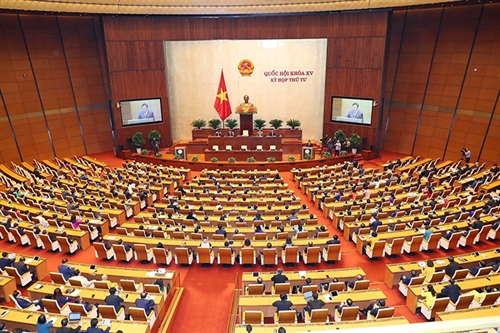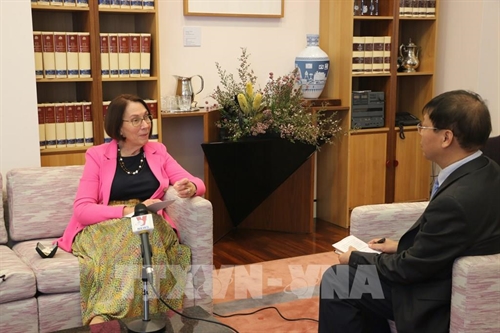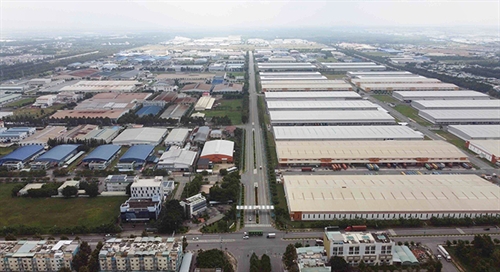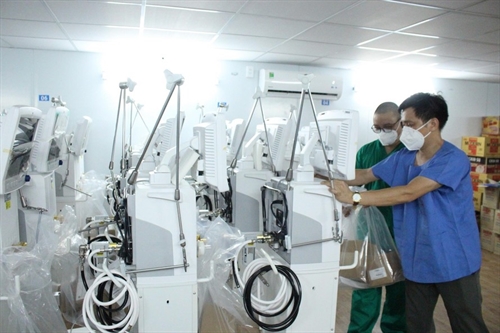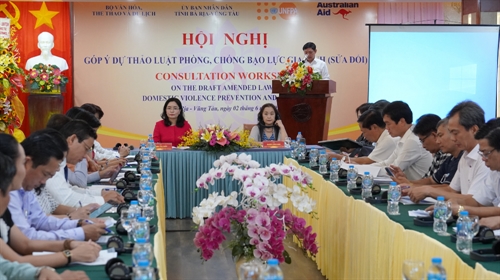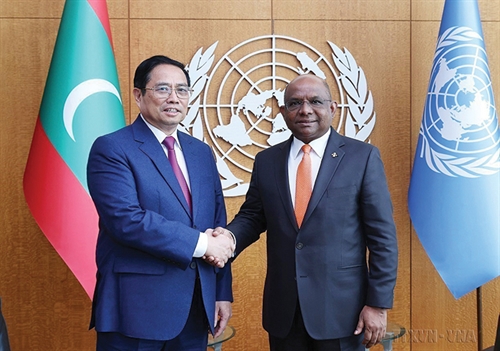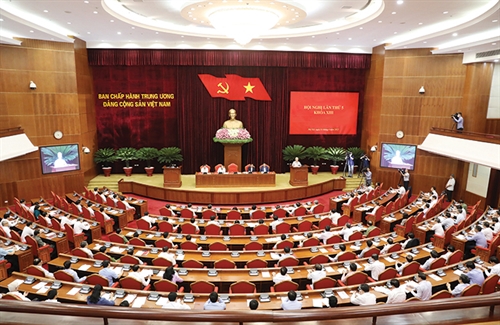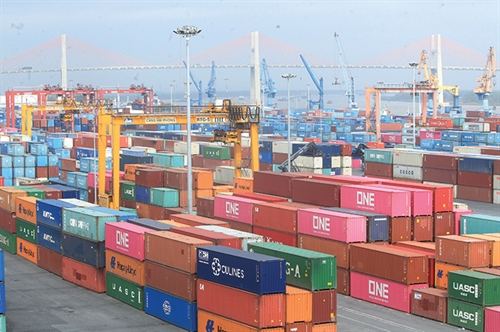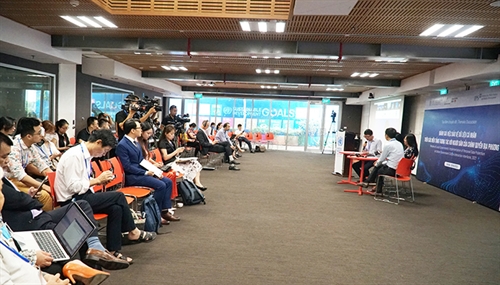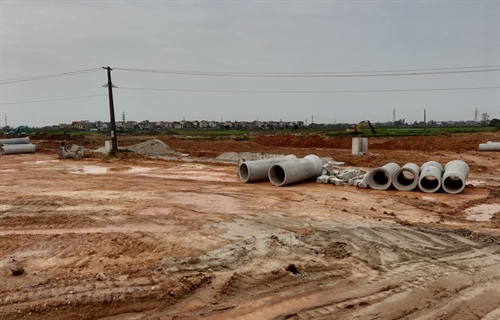Assoc. Prof. Dr. Nguyen Phu Loi
Institute of Religion and Belief
Ho Chi Minh National Academy of Politics
Recently, the United States Commission on International Religious Freedom (USCIRF) has published one-sided and subjective information on the religious situation in Vietnam. They alleged that violations of religious freedom “continued in Vietnam”; that “the Government’s suppression” was a harsh reality facing unregistered independent religious groups; and that provisions on the right to religious freedom in Vietnam’s law were “in essence restrictions on religious freedom”, which “contravened international human rights standards”.
Typically, the USCIRF time and again repeated in its one-sided and biased annual reports the baseless arguments about the religious freedom rights in Vietnam. In 2021 Report, the organization made a vague and ill-grounded claim that Vietnam’s Law on Belief and Religion, albeit with substantial improvements as compared to the previous Ordinance on Belief and Religion, remains limited in nature, running counter to international human rights norms. Thereby, the USCIRF recommended the US Administration put Vietnam into the List of “Countries of Particular Concern”. This is the 15th time in a row since 2007 this organization made such recommendation.
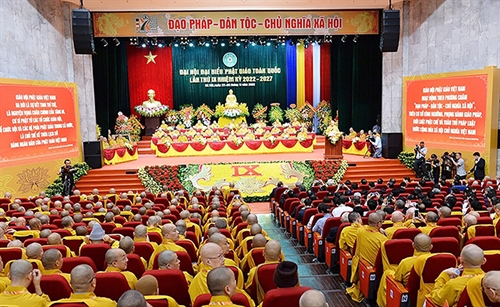 |
| The 9th National Buddhist Congress opens in Hanoi on November 28__Photo: VNA |
Firstly, it should be clearly reiterated that the right to freedom of belief and region in Vietnam’s law has always been respected and guaranteed by the Communist Party and the State of Vietnam, recognized and protected by law and enforced in reality. The 2013 Constitution affirms that everyone has the right to freedom of belief and religion, following or not following a religion. All religions are equal before law. The State respects and protects the freedom of belief and religion. No one may violate the freedom of belief and religion or take advantage of belief or region to break the law (Article 24).[1]
Detailing this right, the Law on Belief and Religion, which took effect on January 1, 2018, states:
“1. Everyone has the right to freedom of belief, to follow or not to follow any religion.
2. Everyone has the right to express his confidence in a belief, a religion; to practice belief, religious rituals; to participate in religious festivals; to study and practice religious tenet and doctrine.
3. Everyone has the right to renounce the world at a religious establishment, to study at a religious training establishment or fostering courses of a religious organization; the minor must be consented by their parents or guardians.
4. Dignitaries and followers have the right to practice religious rites, to preach at religious establishments or other lawful sites.”
The right to freedom of belief and religion is extended to people held in custody or temporarily detained under the law on custody and temporary detention; to persons serving their imprisonment sentence; to persons being subject to measures of sending to reformatories, compulsory education establishments, or compulsory drug addiction treatment facilities; and to foreigners residing lawfully in Vietnam (Article 8).[2]
The right to freedom of belief and religion is not only affirmed by the Party and the State, recognized by law and enforced in reality but also compatible and conformable with the right to freedom of belief and religion under international law and practices. Article 18 of the 1966 International Covenant on Civil and Political Rights, which was acceded to by Vietnam in 1982, provides:
“1. Everyone shall have the right to freedom of thought, conscience and religion. This right shall include freedom to have or to adopt a religion or belief of his choice, and freedom, either individually or in community with others and in public or private, to manifest his religion or belief in worship, observance, practice and teaching.
2. No one shall be subject to coercion which would impair his freedom to have or to adopt a religion or belief of his choice”.[3]
Similarly, Article 9 of the European Convention on Human Rights (ECHR) stated: “1. Everyone has the right to freedom of thought, conscience and religion; this right includes freedom to change his religion or belief and freedom, either alone or in community with others and in public or private, to manifest his religion or belief, in worship, teaching, practice and observance”.
Secondly, USCIRF and the like distorted that the Constitution and the Law on Belief and Religion of Vietnam contain provisions devised to restrict freedom of belief and region. They claimed that although providing the respect for and protection of the right to freedom of belief and region, the Vietnamese Constitution also permits functional bodies to restrict human rights, including the right to freedom of belief and religion. This argument has despised the national security, public order, social safety and morality as well as welfare of the community.
Under international law as well as national laws, freedom of belief and region is neither absolute nor anarchic. Freedom of belief must not affect civic rights, the freedom of other persons and especially the national security, public order, environment and social ethics. For such reason, Article 5 of Vietnam’s Law on Belief and Religion has specified the prohibited acts:
“1. Treating other people with discrimination or bias for the reason of belief or religion.
2. Coercing, buying off or obstructing other persons to follow or not to follow any belief or religion.
3. Infringing upon belief or religion.
4. Conducting religious or belief activities which: a/ infringe upon the national defense and security, national sovereignty, social order and safety, environment; b/ harm the social ethics; infringe upon the bodies, health, lives and/or hurt the honor or dignity of other persons; c/ obstruct the exercise of citizen’s rights and obligations; or d/ sow division between religions, between belief and religious followers and non-followers, between followers of different beliefs or religions.
5. Abusing belief and religious activities for self-seeking”[4].
The above-mentioned provisions in Vietnam’s law on religion are totally conformable and compatible with international law on the right to freedom of belief and religion. Article 18.3 of the United Nation’s International Covenant on Civil and Political Rights of 1966 prescribes: “3. Freedom to manifest one’s religion or beliefs may be subject only to such limitations as are prescribed by law and are necessary to protect public safety, order, health, or morals or the fundamental rights and freedoms of others”.[5] National laws of many countries, while affirming the right to freedom of belief and religion, also provide that such right shall be restricted for public order and national security. For instance, the 1905 French law on the Separation of the Churches and State provides: “The French Republic shall ensure the freedom of belief. It shall guarantee the practice of belief and religion with restrictions for the interest of public order maintenance”.[6]
So, the freedom of belief and region is limited, which shall be restricted for the interest of national security, public order, social ethics and environment, not as absurdly demanded by the USCIRF and a number of American authorities.
Thirdly, they distorted the model of religious management under the registration mechanism in Vietnam, vaguely claiming that religions must be registered under the Law on Belief and Religion with “vague provisions allowing the freedom of region for the interest of national security and social unity and complicated requirements on religious groups for registration with the government; with provisions on the Government’s control of religious activities and the restriction of the freedom of belief and religion”.
In practice, each country has its own way of managing religious activities suitable to its traditions and practical situation, and the management of religious activities via registration is a universal, appropriate and practical form in many countries such as France, Bulgaria, Poland, Japan, Russia, China, etc. Hence, each nation has its own requirements on conditions and forms of registration of legal status of religious organizations. Vietnam’s selection of registration as the management model is reasonable and suitable to the country’s reality.
Vietnam’s law has set specific conditions in order to recognize religious organizations, without hindering religious freedom. All religions which satisfy the conditions on operation duration, staff, location, charter, statute, guiding principles, purposes, etc., will be recognized. Under the Law on Belief and Region, religious management is performed and decentralized depending on the scope of activities of religious organizations. Some operate nationwide such as Buddhism, Catholicism and Protestantism; some operate in certain localities such as Hoa Hao Buddhism, Brahmanism, etc. (Thus, in order to accommodate Vietnam’s context, the registration mechanism and the management of religious activities are based on two factors, first, registration format, and second, the operation scale. This management strategy is similar to that of many other countries that is recognized by the international law). The terms and conditions are not set to restrict or obstruct the religious freedom as claimed by the USCIRF.
Fourthly, with distortions and slanderous contentions, the reactionary forces raised a ballyhoo about “suppression of religion” in Vietnam, as they had depended on a number of religious extremists who abused religion to oppose the Vietnamese State and were sentenced to imprisonment under the Penal Code.
The freedom of belief and religion in Vietnam is guaranteed and protected by law and enforced in reality through a comprehensive legal system on religion, including the 2013 Constitution, the 2016 Law on Belief and Religion, which serve as a legal tool to ensure the freedom of belief and religion for people.
The number of religious followers has increased from 15 million in 1997 (over 20 percent of the population) to almost 27 million (more than 27 percent) in 2021.[7] Belief and religious activities take place vibrantly in different localities, communities and social strata, especially at the beginning of New Year festivals and traditional rituals. Followers regularly practice religious activities at home and worshiping venues according to the traditional ceremony of each religion. Religious organizations escalated their activities with many large-scale and long rituals, attracting not only adherents but also non-religious people, such as Buddhist birthday festivals (2008, 2014, 2019); La Vang holy land pilgrimage (2010), young Catholic congress; the 500th anniversary of the beginning of the Protestant Reformation (2017)[8], the religion initiation rites for 3,755 ethnic minority people in Kon Tum province (April 2009), and for 5,311 Xtieng minorities in Binh Phuoc province (July 2011).[9]
Moreover, the number of registered religions has constantly increased from six with 12 organizations in 2004 to 15 with 37 organizations in 2017 and 16 with 41 organizations in 2021. Before 1990, there were only six religious training establishments nationwide, including two for Buddhism and four for Catholicism, which rose to 63 in 2021 (46 for Buddhism, 11 for Catholicism, three for Protestantism, two for Cao Dai and one for Hoa Hao). As a result, the number of religious dignitaries and adherents quickly rose from 31,548 in 1995 to 54,125 in 2021, and 108,770 at present[10], who provide religious guidance for followers nationwide.
Besides, since 1990, many worshipping venues have been built or renovated throughout the country to meet the followers’ demands for religious activities. In 2000, there were 18,474 such places, which rose to 30,047 in 2021 nationwide.[11]
The number of religious publications has been increased. In five years (2000-04), the Religion Publishing House printed and published 719 religions publications with 4.2 million copies, including various religious tenets translated into ethnic minority languages, not to mention a large number of religious documents and doctrines printed and published by other establishments.[12]
The descriptive data clearly testify to the freedom of belief and religion in Vietnam as well as the correct religion policies of the Vietnamese Party and State. All these stark-clear facts serve as a rebuke to the distortions of hostile forces, including the USCIRF.-
